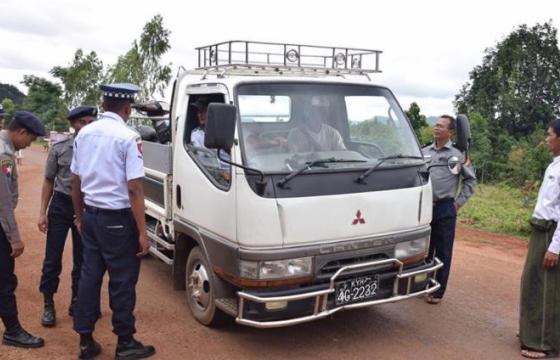The National Unity Government (NUG) has accused the junta of launching an aggressive disinformation campaign in a deliberate attempt to cover up the war crimes it has committed.
The junta has been using state-owned television stations, newspapers, online platforms and lobbyists to spread intentional disinformation designed to discredit and weaken the revolution.
In one case, the junta denied responsibility for an airstrike on a school in Ohtein Dwin Village, in Sagaing Region’s Tabayin Township that killed two teachers and 22 students, and injured a further approximately 40 people. Junta lobbyists actively spread a fabricated story saying that the school was not destroyed by a junta airstrike and that the lethal explosion happened because people's defence force (PDF) members were making improvised explosive devices (IEDs) inside the school.
Needless to say, this narrative was completely false. Junta-linked lobbyists also carried out coordinated efforts to flood the comment sections of media reports with false narratives about the attack. This is a common tactic used by junta-linked lobbyists who often spread false information, disinformation and propaganda via the comments sections of platforms like Telegram, TikTok and, more recently, Facebook.
In the early months following the February 2021 coup, Facebook banned the junta’s disinformation campaigns. As a result, Pro-junta lobbyists who wanted to continue spreading false news were forced to use alternative, less strict online platforms to spread their disinformation, such as Telegram where they set up propaganda channels masquerading as news channels.
But since Donald Trump became US President in January 2025, Facebook has rolled back on content moderation and taking down disinformation. Junta supporters have have been taking advantage of the more lenient moderation to again disseminate disinformation on Facebook, according to U Toe Zaw Latt, the secretary of the Independent Press Council Myanmar (IPCM).
He said to Than Lwin Times: “In the past, Facebook had a dedicated team that monitored and blocked the junta’s disinformation efforts. But after Facebook changed its policy, that process has essentially stopped. There’s no longer an effective system to filter out disinformation. The junta is now taking full advantage of this gap—and using these devastating incidents [junta attacks on civilians] as tools for disinformation.”
Pro-junta lobbyists often spread disinformation and try to shift the blame for all the country’s problems on those who are opposed to the junta, by doing things such as accusing PDF members of demolishing roads and bridges, which they allege disrupts transportation and drives up prices. They also claim that PDFs target electricity towers to cause blackouts.
Pro-junta lobbyists online concentrate on accusing resistance forces of carrying out atrocities that have been committed by the junta in an attempt to foster doubt and mistrust about the revolution amongst the public.
But, sometimes it is hard for the public to counter the junta and its allies' online disinformation campaigns because the junta has so limited people’s freedom of expression online. It carries out surveillance of online posts and imposes harsh punishments, including imprisonment, for social media posts that are critical of the junta or that support the revolution.
Captain Zin Yaw, a former military officer who is part of the anti-junta Civil Disobedience Movement (CDM) urged those who oppose the junta to find effective ways to counter the lies spread by pro-junta lobbyists.
He said: “Our side needs to clearly show that the content they’re spreading is false. We have to keep pushing back against this disinformation until everyone, those who support the revolution, those who are neutral, and even those who back the coup, can see the junta’s true, deceitful nature. These pro-junta lobbyists aren’t exactly the smartest people. But on the side of the Spring Revolution, we have respected voices—academics, intellectuals, scholars, and artists. I understand that some believe we shouldn’t take the junta’s disinformation too seriously, but I think it’s important that the public is properly informed.”
Some warn that the junta’s attempts to blame the revolution for the country’s decline and problems should not be underestimated and that the junta’s relentless propaganda could gradually erode public support for the revolution over the long-term.
Nai Naga, spokesperson for the Mon State Revolutionary Force (MSRF) armed revolutionary group, said to Than Lwin Times: “Resistance forces have to treat information warfare just like any other battlefield. If we don’t, people will start to believe false stories against the revolution, and public support for us will shrink.”
The NUG has announced it will take legal actions against pro-junta lobbyists spreading disinformation, and has urged the international community, including the United Nations, to exert practical and effective pressure to stop the junta’s ongoing atrocities.







